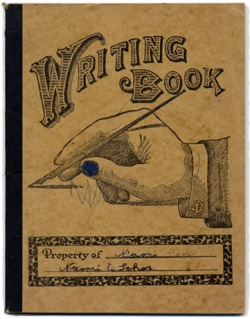NYMag's Sam Anderson used a survey from the Guardian that asked contemporary writers to share writing tips for their peers. Many seem to suggest that writers be a little more like their type-A compadres, by never being satisfied and always striving for deeper analysis and the most perfect descriptor. Also, I like P.D. James' word choice as she deems English the "richest and more versatile language in the world." English may not employ reason universally and, in some cases, the rules and exceptions are downright nonsensical, but it is certainly rich. To the article!
1. Roddy Doyle: "Do feel anxiety — it’s the job."
2. P.D. James: "Increase your word power. Words are the raw material of our craft. The greater your vocabulary the more effective your writing. We who write in English are fortunate to have the richest and most versatile language in the world. Respect it."
3. A.L. Kennedy: "Remember writing doesn’t love you. It doesn’t care."
4. Anne Enright: "Remember that all description is an opinion about the world. Find a place to stand."
5. Neil Gaiman: "The main rule of writing is that if you do it with enough assurance and confidence, you’re allowed to do whatever you like."
6. Geoff Dyer: "Don’t be one of those writers who sentence themselves to a lifetime of sucking up to Nabokov."
7. Anne Enright: "Imagine that you are dying. If you had a terminal disease would you finish this book? Why not? The thing that annoys this 10-weeks-to-live self is the thing that is wrong with the book."
8. Zadie Smith: "Resign yourself to the lifelong sadness that comes from never being satisfied."
9. Will Self: "Regard yourself as a small corporation of one. Take yourself off on team-building exercises (long walks). Hold a Christmas party every year at which you stand in the corner of your writing room, shouting very loudly to yourself while drinking a bottle of white wine. Then masturbate under the desk. The following day you will feel a deep and cohering sense of embarrassment."
10. A.L. Kennedy: "Older / more experienced / more convincing writers may offer rules and varieties of advice. Consider what they say. However, don’t automatically give them charge of your brain, or anything else ─ they might be bitter, twisted, burned-out, manipulative, or just not very like you."
Read more: Anderson: The Best Writing Advice of the Best Writing Advice -- Vulture http://nymag.com/daily/entertainment/2010/02/anderson_the_best_writing_advi.html#ixzz0gZH0Rv70
1. Roddy Doyle: "Do feel anxiety — it’s the job."
2. P.D. James: "Increase your word power. Words are the raw material of our craft. The greater your vocabulary the more effective your writing. We who write in English are fortunate to have the richest and most versatile language in the world. Respect it."
3. A.L. Kennedy: "Remember writing doesn’t love you. It doesn’t care."
4. Anne Enright: "Remember that all description is an opinion about the world. Find a place to stand."
5. Neil Gaiman: "The main rule of writing is that if you do it with enough assurance and confidence, you’re allowed to do whatever you like."
6. Geoff Dyer: "Don’t be one of those writers who sentence themselves to a lifetime of sucking up to Nabokov."
7. Anne Enright: "Imagine that you are dying. If you had a terminal disease would you finish this book? Why not? The thing that annoys this 10-weeks-to-live self is the thing that is wrong with the book."
8. Zadie Smith: "Resign yourself to the lifelong sadness that comes from never being satisfied."
9. Will Self: "Regard yourself as a small corporation of one. Take yourself off on team-building exercises (long walks). Hold a Christmas party every year at which you stand in the corner of your writing room, shouting very loudly to yourself while drinking a bottle of white wine. Then masturbate under the desk. The following day you will feel a deep and cohering sense of embarrassment."
10. A.L. Kennedy: "Older / more experienced / more convincing writers may offer rules and varieties of advice. Consider what they say. However, don’t automatically give them charge of your brain, or anything else ─ they might be bitter, twisted, burned-out, manipulative, or just not very like you."
Read more: Anderson: The Best Writing Advice of the Best Writing Advice -- Vulture http://nymag.com/daily/entertainment/2010/02/anderson_the_best_writing_advi.html#ixzz0gZH0Rv70
